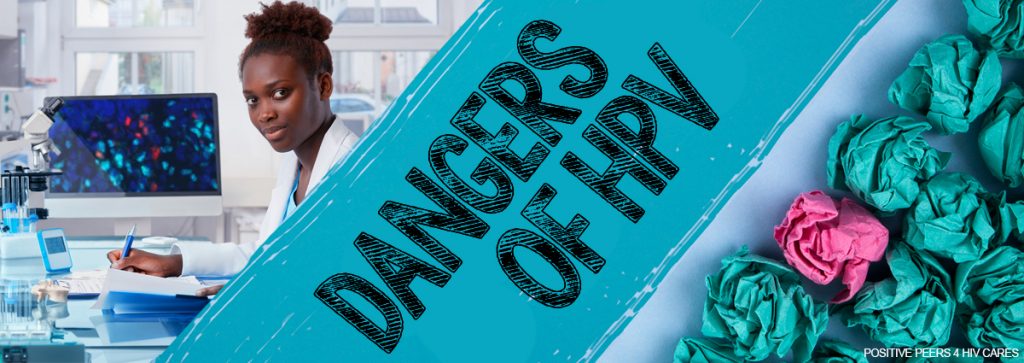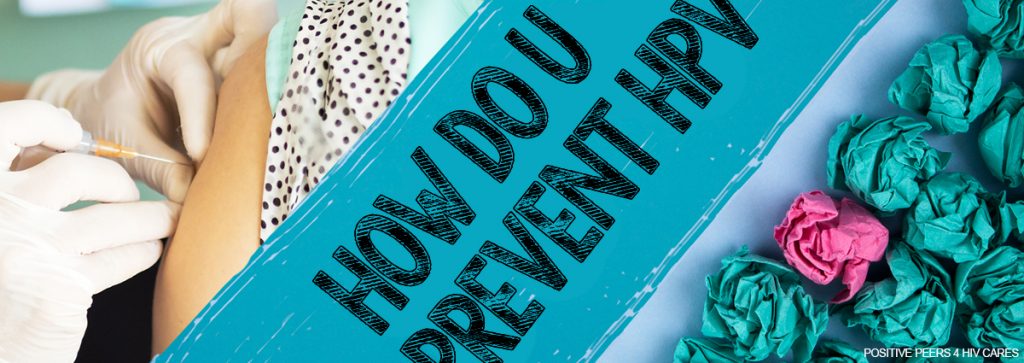
By: Ann K. Avery, MD, Infectious Disease Physician at MetroHealth Medical Center
Human papillomavirus (HPV), the virus that causes genital warts, is an equal-opportunity bug. It’ll infect anybody who is sexually active. 80% of people catch HPV at least once.
We wrote about HPV in a previous blog on seven common sexually transmitted infections. Though it isn’t one of the most dangerous STIs, it’s still a great idea to educate and protect yourself.
Why? Because it's a riskier infection for people who have compromised immune systems. So if you’re living with HIV, it’s something you need to know about.
Bottom line: It pays to get educated on HPV.

What is HPV, anyway?
HPV is not one virus: It’s a group of more than 100.
Warts are the most common symptoms of an HPV infection. But many varieties of the virus cause no symptoms.

Why is it dangerous?
HPV is a risk factor in more than 30,000 cancer cases a year in men and women. Some varieties can be associated with cancers in the mouth, throat, anus, and rectum. Certain strains of HPV can cause cancer of the penis, cervix, vagina, and vulva.
Come join our private, stigma-free, supportive community.
Health management tools with medication & appointment reminders.
Social networking in a community conversation & private chats.
How is it spread?
Skin-to-skin contact spreads HPV. Also, oral sex can spread the infection. Even kissing can transfer it from one mouth to another. HPV cancer occasionally crops up in the back of people’s throats, on their tongues, and in their tonsils.
Yes, going down on somebody can get you infected (sorry).

How do we prevent HPV?
Glad you asked!
There’s plenty you can do:
- Get vaccinated. There are vaccines to prevent the cancer-connected strains of HPV. Vaccination rules depend on your age and gender. These people should get the vaccine:
- All boys and girls at age 11 or 12, and any teens who did not get the vaccine at an earlier age.
- Men who have sex with men, including those who identify as gay or bisexual, through age 26.
- Transgender adults through age 26.
- Adults through age 26 who have compromised immune systems.
- All men through age 21; all women through age 26.
- Use a condom or dental dam. A condom is your best bet against most STIs because it prevents the spread of infected bodily fluids. Because skin-to-skin contact spreads HPV, a condom might not prevent every kind of HPV infection. But it’s still a safer option than going bareback.
- Stay in a monogamous relationship with a partner who does the same. If you and your partner are free of the infection, there’s no way to spread the virus.
- Get an annual pap test (vaginal or anal). The test can help identify an infection and prevent nasty cancers.
The truth is, there are only three sure-fire ways to never get an HPV infection: Don’t touch anybody, don’t let anybody touch you. Getting vaccinated prevents the scary strains, but you can still get other strains that cause pesky warts.
If, like the rest of us, you’d rather eat dirt than give up sex, then it’s a good idea to be aware of HPV, and look into getting vaccinated.

No shame, no stigma
HPV is a very common STI—in fact, 80 percent of sexually active people will contract it at some point in their lives. So, there’s nothing to be ashamed of.
But when you’re living with HIV, it’s a great idea to protect yourself from anything that could cause additional health problems. Thankfully, staying on top of your HIV treatment will help protect you from many of the potential issues related to HPV.
Related Blogs:


